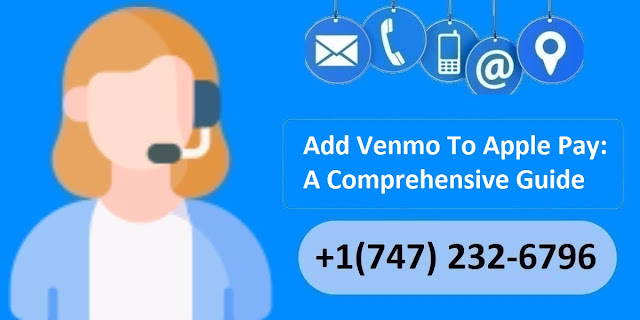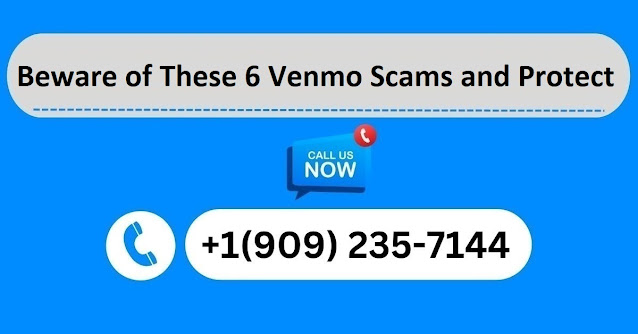How To Do Your Venmo Taxes? What To Expect For Tax Season?
Are you one of the millions of people who use Venmo to pay for goods and services, split bills with friends, or transfer money? While Venmo is a convenient and easy-to-use app, tax season can be a bit confusing. With the new IRS rule for Venmo coming into effect in 2023, it's essential to know what to expect when it comes to doing +1(909) 235-7144 your Venmo taxes. In this blog post, we'll guide you through everything you need to know about filing taxes if you paid on Venmo. Keep reading to learn more!
What Is The New IRS Rule For Venmo 2023?
Starting in 2023, Venmo will have to comply with the new IRS rule that requires payment apps to report users' transactions. This means that if you receive more than $600 in a calendar year through Venmo, the app will send you the IRS Form 1099-K. The form includes information about your gross revenue received from all sources via Venmo and is used by the government to ensure that taxpayers accurately report their income.
The new rule applies not only to Venmo but also to other payment apps such as PayPal and Cash App. It's important to note that this reporting requirement does not mean that you'll automatically owe taxes on those transactions. However, it does require extra attention when filing your taxes because failure to include all taxable income can result in penalties or interest charges.
It's worth noting that even though this rule doesn't start until 2023, it's still essential for users of payment apps like Venmo to keep accurate records of their transactions starting now. That way, they can avoid any issues come tax season and ensure compliance with the new regulation.
Do I Need A Tax Form From Venmo?
When it comes to doing your taxes, you may be wondering if you need a tax form from Venmo. The answer depends on how much money you received or sent using the app.
If you only used Venmo for personal payments and didn't receive more than $20,000 or have 200 transactions in a calendar year, then you don't need a tax form from Venmo. However, if you exceeded these thresholds or used Venmo for business purposes, then you will receive a 1099-K form from Venmo.
It's important to note that just because you don't receive a tax form from Venmo doesn't mean that the IRS won't expect you to report your income on your tax return. You are still responsible for reporting all of your income accurately on your taxes, even if it wasn't reported to the IRS by another party.
To make sure that everything is accurate and up-to-date when filing your taxes, keep track of all of the payments made through Venmo throughout the year. This way, come tax season, there'll be no surprises!
How Do I File Taxes If I Paid On Venmo?
If you made payments on Venmo throughout the year, you may be wondering how to include them in your tax filing. Fortunately, it's not complicated if you have a few pieces of information.
Firstly, make sure that all of your transactions are properly categorized and recorded in the app. This can save you time when it comes to figuring out what amounts were spent on what expenses.
Next, look for any tax forms that Venmo may have sent you at the beginning of the year. If they didn't send anything, don't worry - just gather up all of your transaction records and use those as support for deducting business expenses or claiming charitable donations.
When it comes time to file taxes, simply report any income earned through Venmo as miscellaneous income. This is typically reported on line 21 of Form 1040.
Including Venmo payments in your taxes requires diligence and some record-keeping but shouldn't cause too much stress come tax season.
Which Tax Forms Can I Expect To Receive From Venmo?
Venmo, like any other payment platform, has to comply with tax regulations by providing its users with necessary tax forms. As such, there are several types of tax forms that you can expect to receive from Venmo.
One of the most common tax forms is the 1099-K form. This form reports your gross sales or transactions processed through Venmo for the year. It will show how much money was received in total payments and the fees associated with those payments.
In addition to the 1099-K form, you might also receive a 1099-MISC form if you have earned more than $600 in miscellaneous income on Venmo during the year. This could include referral bonuses or other incentives offered by Venmo.
It's important to note that even if you do not receive any tax forms from Venmo, it does not mean that your earnings are exempted from taxes. You still need to report all your income when filing your taxes.
If you're unsure about what tax documents you should be expecting from Venmo and how they affect your overall taxes owed or refund due, it's best to consult a professional accountant or use online resources available for free guidance on these matters.
I Never Received A Notice About Tax Forms From Venmo.
If you've never received a notice about tax forms from Venmo, don't worry. It's possible that you didn't meet the transaction threshold for receiving such documents. According to the IRS, companies are only required to send 1099-K forms to users who have made more than 200 transactions totaling $20,000 or more in a calendar year.
However, even if you didn't receive any formal tax documents from Venmo, it's still your responsibility to report all income earned through the platform on your taxes. This includes money received from friends and family as well as payments related to goods and services.
To accurately report this income, keep detailed records of all transactions made through Venmo throughout the year. This will make it easier when it comes time to file your taxes.
If you're unsure about how to properly report your Venmo income or have other questions related to taxes and finances, consider consulting with a qualified accountant or tax professional for guidance.
Will I Receive Tax Documents If I Closed My Venmo Account?
If you closed your Venmo account, you may be wondering whether or not you'll receive tax documents. The answer is that it depends on when the account was closed.
If your Venmo account was open during the tax year in question and met certain transaction thresholds, then you will likely receive any relevant tax forms from Venmo. However, if your account was closed before the end of the year or did not meet those transaction thresholds, then you may not receive anything.
It's important to note that just because you don't receive a tax form doesn't mean that you're off the hook for reporting income. Even if Venmo doesn't send a 1099-K form, it's still up to you to report any income received through their platform.
If you're unsure about whether or not you should have received a tax document from Venmo but haven't yet received one, check with them directly or consult with a professional tax preparer who can help guide you through the process.
Will Payment Between Friends On Venmo Be Taxed?
In summary, Venmo taxes may seem overwhelming at first, but with the right information and tools at your disposal, you can navigate through it smoothly. As long as you keep track of your transactions and report them accurately to the IRS, you won't have to worry about any legal issues.
Payment between friends on Venmo is not taxable since they are considered personal transactions. However, if there is a business aspect involved in the transaction or if you receive payments for goods or services rendered via Venmo, then it becomes taxable income that needs to be reported to the IRS.
Understanding how to do your Venmo tax is crucial in avoiding penalties from the IRS. Remember that staying organized and keeping accurate records will make tax season much less stressful.
How To Get Your Venmo Tax Refund?
If you're wondering how to get your Venmo tax refund, the process is actually quite simple. First and foremost, it's important to ensure that your account information with the IRS is up-to-date and accurate so that any refunds can be deposited directly into your Venmo account. Once you've filed your taxes and are expecting a refund, keep an eye on both your email inbox and Venmo notifications as the IRS will typically send confirmation of deposit via these channels. It's also worth noting that while some banks may hold deposits for several days before releasing funds, Venmo typically releases them immediately upon receipt. Finally, if you haven't yet linked a bank account or debit card to your Venmo account, now would be the time to do so in order to easily access any tax refunds or other payments received through this popular peer-to-peer payment app.



Comments
Post a Comment